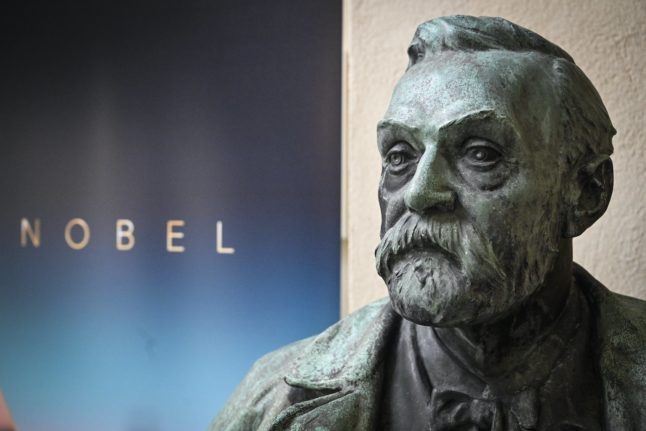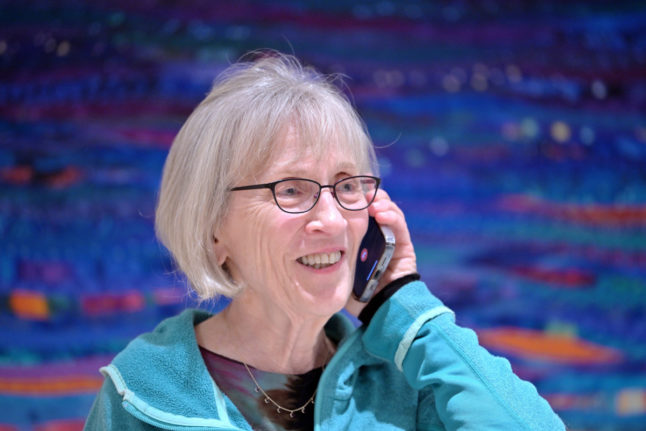All the literary gossip and wild guessing of the last few weeks will have their answer on Thursday at 1pm when the Swedish Academy in Stockholm reveals its pick.
Russian author and outspoken Kremlin critic Lyudmila Ulitskaya, who lives in self-imposed exile in Germany, has been frequently mentioned in this year’s speculation.
Her epic novels, often focused on personal relationships, have been compared to those of Leo Tolstoy and John Steinbeck.
She has harshly criticised Russian President Vladimir Putin over his “senseless” war in Ukraine, predicting it will be “catastrophic” for Russia.
Lisa Irenius, culture editor at Swedish daily Svenska Dagbladet, said it would be a bold choice to champion Russian culture at a time when Moscow is being lambasted over Ukraine.
But it would also send a message that “literature stands free from politics”, she said.
Betting sites have been surprisingly accurate in predicting the laureate in recent years, with Norwegian playwright Jon Fosse and China’s avant-garde fiction writer and literary critic Can Xue hotly tipped this year.
Early on Thursday, Chilean poet Raul Zurita -whose name had not previously been mentioned in the Nobel buzz – suddenly appeared among the top picks on betting sites.
But Björn Wiman, culture editor at Sweden’s paper of reference Dagens Nyheter, told AFP his favourite was a political author whose name has featured in Nobel speculation for years: Salman Rushdie.
The Indian-born British author survived a stabbing on stage last year after living in hiding for years due to an Iranian fatwa calling for his death over his 1988 book “The Satanic Verses”.
“It’s time for him to win, and if he does, hats off to the Academy” for standing up for freedom of expression, which Rushdie embodies, Wiman said.
Righting a wrong?
A nod to Rushdie would correct what many see as a three-decade-old mistake made by the 18-member Swedish Academy.
In the name of the “independence of literature”, the Academy refused to condemn the 1989 fatwa against Rushdie.
Academy members were divided about whether to stand as neutral guarantors of the arts or as supporters of their fellow author. Three members angered by the Academy’s silence resigned.
It was not until 2016 that the Academy finally condemned the fatwa.
Speaking on public radio SR on the morning ahead of the announcement, Johan Hilton, culture editor at newspaper Göteborgs-Posten, floated Roland Schimmelpfennig as a personal favourite despite the German playwright’s absence from betting sites.
Lyra Ekström Lindbäck, author and literary critic, also speculated on SR that South Korean novelist Hwang Sok-yong could be given the nod.
With no public shortlist, it is always difficult to predict which way the Swedish Academy is leaning.
It could, as it has frequently done in the past, shine a spotlight on a figure less well known to the general public, such as Can Xue or Fosse, whose work is among the most widely staged of any contemporary playwright in Europe.
Australia’s Gerard Murnane, Kenyan writer Ngũgĩ wa Thiong’o and Romanian author Mircea Cărtărescu are also much fancied.
“It’s still very difficult to guess” the winner, stressed Lina Kalmteg, literary critic for Swedish public radio SR.
As is the case for all Nobel prizes, the list of nominations and the juries’ deliberations are sealed for 50 years.
Reflect the times
Other “usual suspects” frequently mentioned in the speculation are Hungary’s Péter Nádas and László Krasznahorkai, Albania’s Ismail Kadare, Canada’s Margaret Atwood and Somali author Nuruddin Farah.
The Swedish Academy – made up of authors, historians, philosophers and linguists – has long been criticised for the overrepresentation of Western white male authors among its picks.
Since the Academy was torn apart by a 2018 #MeToo scandal, followed by its controversial pick of Austrian author Peter Handke for the 2019 Nobel, the body has tried to turn the page.
Last year it gave the prestigious award to French feminist icon Annie Ernaux.
The year before it honoured British Tanzanian-born writer Abdulrazak Gurnah for his work exploring the torments of exile, colonialism and racism.
“In recent years, there is more awareness that you can’t remain in a eurocentric perspective, there has to be more equality and the prize has to reflect the times,” Stockholm University literature professor Carin Franzén told AFP.
She would like to see the prize go to Canadian poet Anne Carson.
By AFP’s Nioucha Zakavati



 Please whitelist us to continue reading.
Please whitelist us to continue reading.
Member comments